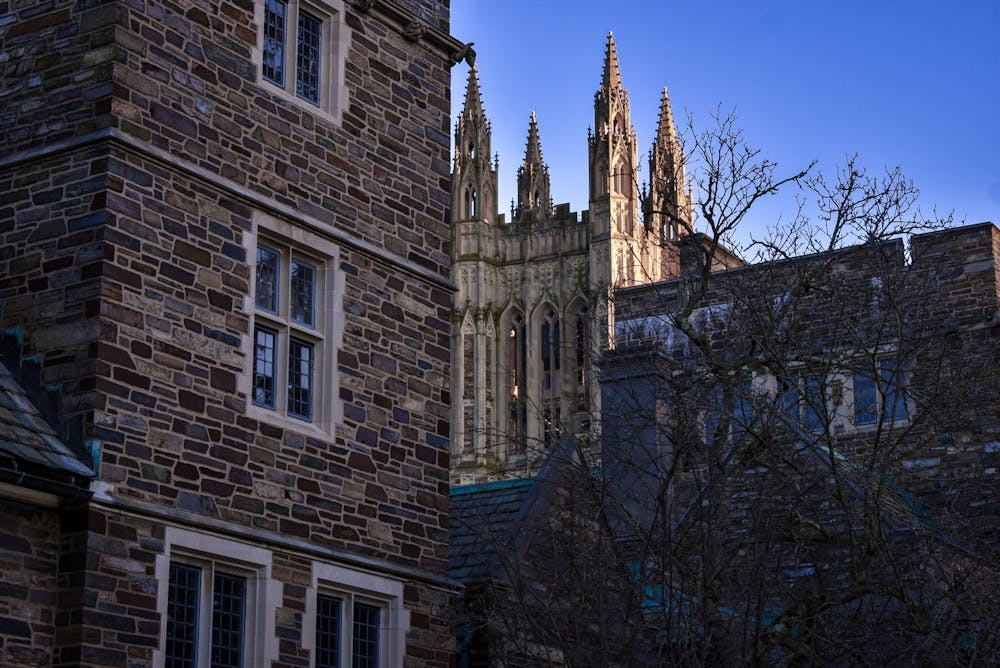Editor’s Note: The University has clarified that the raise was approximately $2000 and was ratified before the unionization drive. Read our most recent coverage here.
After a two-week union campaign, Princeton Graduate Students United (PGSU) announced that the University will raise some graduate student stipends by $5,000 in the 2023–2024 academic year. In an attachment to a recent memo sent out to the graduate student body, the University confirmed that the annual stipend rate for the 2023–2024 academic year will be between $47,880 and $50,400. Current graduate stipends range from $45,600 to $48,000. The raise comes as the University has expressed “concerns” with the unionization drive to the graduate student body, and after 1,600 graduate workers, a majority, signed union cards.
According to an email obtained by The Daily Princetonian from the PGSU sent to graduate students, the group hopes more support is to come. In addition to the raise, the union is pursuing guaranteed affordable housing through graduation, improvements to the grievance procedure, more support for international students, better healthcare, funded childcare, improvements to workplace safety, among other causes.
“This is the first of our union wins, but it’s not enough,” the PGSU organizing committee wrote in an email to graduate students. “We need a union for graduate workers that will allow us to bargain a legally binding contract.”
This news comes after over 150 graduate students, undergraduates, and post-graduate fellows rallied with PGSU on Wednesday, Feb. 15 to demand fair wages and more affordable housing from the University and the Graduate Student Government (GSG) voted to release a message of support for PGSU. Graduate students formed the PGSU in 2016.
In the email, PGSU speculated that this may be a one-time raise and stressed the lack of graduate student input.
“[The raise] does not offset the fact that some graduate students currently pay 45% of their stipends back to Princeton for housing costs each month. It does not address the systemic power imbalance that we can right with a union. It does not guarantee graduate workers a place to turn to in an emergency,” they wrote.
Princeton is not the first university to announce raises after a union card campaign began. According to the PGSU, Massachusetts Institute of Technology (MIT)’s Graduate Student Union held a rally on Sept. 27, 2021, and on Oct. 14, received a 3 percent raise for all graduate workers. Duke University’s Graduate Student Union held a campaign rally on Sept. 5, 2022, and on Sept. 14 received an 11.4 percent raise to their base stipend. Dartmouth College’s Graduate Student Union held a walkout and collected pledge cards on Oct. 11, 2022, and on Nov. 1, the University announced a tentative raise in stipends to $40,000 for the upcoming year.

Rodney Priestley, the Dean of the Graduate School sent a memo to graduate students on Feb. 28 referencing the unionization process, including a frequently asked questions (FAQ) document about what unionization means, and the University’s progress in helping graduate students, including the raise.
“Your voice is crucially important as you consider this unionization question,” Priestley wrote in the memo. “We, therefore, believe it is essential for you to be fully informed before deciding whether or not unionization is right for you and your fellow graduate students at Princeton.”
“By design, union representation would have a real effect on the nature of your relationship with the University. We have concerns about how such representation would affect your education and experience at Princeton,” the memo continued.
Priestley also explained that there are other outlets for graduate students’ voices to be heard outside of unionization, including through the GSG, the Council of the Princeton University Community (CPUC), the Priorities Committee, the University Student Life Committee, the Graduate Housing Advisory Board, the Student Health Plan Advisory Council, and the Graduate Student Departmental Committees. He claimed that in taking advantage of these existing mechanisms and opportunities for input, graduate students can “continue to help shape policies and programs at Princeton.”

According to Priestley, Princeton currently has six labor unions on campus, representing over 1,000 staff members who work in areas such as facilities, dining, public safety and security, and “certain aspects” of the library. Union staff members include, for instance, housing and dining personnel and members of the Department of Public Safety (DPS).
Priestley drew a distinction between graduate students and other unionized workforces on campus such as facilities, dining, and public safety workers. “These positions differ in numerous ways from those of graduate students, for example, in the risk associated with their work, their representation in University governance, and in the overall nature of the engagement towards a lifelong relationship,” Priestley wrote.
Lia Opperman is an Associate News Editor for the ‘Prince.’
Please send any corrections to corrections[at]dailyprincetonian.com.
Correction: This piece has been updated so that current stipend rates are annual rates rather than academic year rates. The ‘Prince’ regrets this error.








